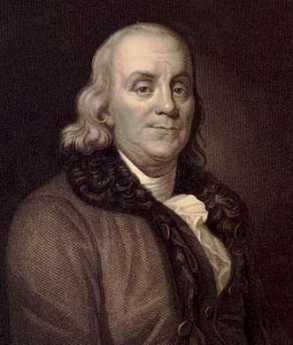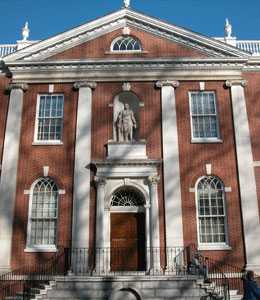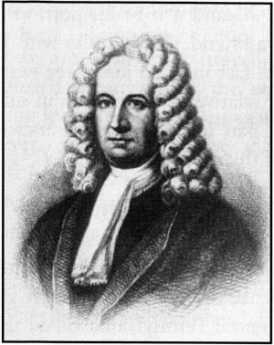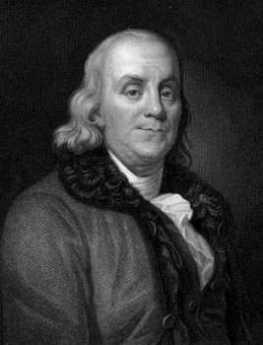Related Topics
Benjamin Franklin
A collection of Benjamin Franklin tidbits that relate Philadelphia's revolutionary prelate to his moving around the city, the colonies, and the world.

North of Market
The term once referred to the Quaker district along Arch Street, and then to a larger district that had its heyday after the Civil War, industrialized, declined, and is now our worst urban problem area.
Franklin Inn Club
Hidden in a back alley near the theaters, this little club is the center of the City's literary circle. It enjoys outstanding food in surroundings which suggest Samuel Johnson's club in London.
Quakers: The Society of Friends
According to an old Quaker joke, the Holy Trinity consists of the fatherhood of God, the brotherhood of man, and the neighborhood of Philadelphia.
Quakers: All Alike, All Different
Quaker doctrines emerge from the stories they tell about each other.
Literary Philadelphia
Literary
Pre-Revolutionary Philadelphia
.
Quaker Gardens
New topic 2016-12-04 04:23:55 description
Logan, Franklin, Library

|
| The Library Company of Philadelphia |
Jim Greene is the librarian of the Library Company of Philadelphia, and one of the leading authorities on James Logan, the Penn Proprietors' chief agent in the Colony. Since Logan and Ben Franklin were the main forces in starting the oldest library in America, knowing all about Logan almost comes with the job of Librarian. We are greatly indebted to a speech the other night, given by Greene at the Franklin Inn, a hundred yards away from the Library.

|
| James Logan |
Logan has been described as a crusty old codger, living in his mansion called Stenton and scarcely venturing forth in public. He was known as a fair dealer with the Indians, which was an essential part of William Penn's strategy for selling real estate in a land of peace and prosperity. Unfortunately, Logan was behind the infamous Walking Purchase, which damaged his otherwise considerable reputation. Logan must have been a lonesome person in the frontier days of Philadelphia because he owned the largest private library in North America and was passionate about reading and scholarly matters. When he acquired what was the first edition of Newton's Principia, he read it promptly and wrote a one-page summary. Comparatively few people could do this even today. It's pretty tough reading, and those who have read it would seldom claim to have "devoured" it.

|
| Benjamin Franklin |
Except young Ben Franklin, who never went past second grade in school. The two became fast friends, often engaging in such games as constructing "Magic Squares" of numbers that added up to the same total in various ways. For example, Franklin doodled off a square with the numbers 52,61,4,13,20,29,36,45 (totaling 260) on the top horizontal row, and every vertical row beneath them totaling 260, as for example 52,14,53,11,55,9,50,16, while every horizontal row also totaled 260 as well. The four corner numbers, with the 4 middle numbers, also total 260. Logan constructed his share of similar games, which it is difficult to imagine anyone else in the colonies doing at the time.
Logan and Franklin together conceived the idea of a subscription library, which in time became the Library Company of Philadelphia in 1732. The subscription required of a library member was intended to be forfeited if the borrower failed to return a book. Later on, the public was allowed to borrow books, but only on deposit of enough money to replace the book if unreturned. We are not told whose idea was behind these arrangements, but they certainly sound like Franklin at work. More than a century later, the Philadelphia Free Library was organized under more trusting rules for borrowing which became possible as books became less expensive.
Logan died in 1751, the year Franklin at the age of 42 decided to retire from business -- and devote the remaining 42 years of his life to scholarly and public affairs. He first joined the Assembly at that time, so he and Logan were not forced into direct contention over politics, although they had their differences. How much influence Logan exerted over Franklin's plans and attitudes is not entirely clear; it must have been a great deal.
Originally published: Saturday, October 28, 2006; most-recently modified: Friday, September 20, 2019
| Posted by: Mario | Jul 7, 2009 9:26 PM |
| Posted by: George Fisher | Jul 7, 2009 11:54 AM |
| Posted by: Mario | Jul 6, 2009 11:16 PM |